The Office of Administrative Trials and Hearings (OATH) is an independent administrative law court that adjudicates a wide variety of issues. The OATH Hearings Divisions hold hearings for summons issued by multiple agencies, which include but are not limited to the following departments:
- Buildings, Sanitation, Environmental Protection
- Consumer and Worker Protection
- Health and Mental Hygiene
- Taxi and Limousine Commission
- Police or fire departments
- Transportation departments
- Consumer affairs department
- Mayor’s Office of Special Enforcement
Trials are presided over by Administrative Trials Judges, who have five-year appointments. The OATH Trials Division handles cases including but not limited to:
- Employee discipline and disability hearings for civil servants
- Conflicts of Interest Board cases
- Real estate, zoning, and loft law violations
- Human rights violations (under the City Human Rights Laws)
- Proceedings related to the retention of seized vehicles by the police
Government agencies, employees, and unions can also seek workplace mediation services at the Center for Creative Conflict Resolution, which is housed at OATH.
OATH Violations & Summons
A summons is essentially a ticket. As mentioned, OATH does not issue the ticket; another department does. You can receive summons because of noise complaints, expired business permits, traffic violations involving pedestrians, mishandling food preparation equipment, etc. The agency that issued your ticket can be found at the top of your summons.
If you receive a summons, the following information will be included in the statement:
- The agency that wrote and filed the summons
- The issuing officer’s name and signature
- The hearing date
- The date and place of the occurrence
- Information concerning the violation
- Details on the potential fine
- Details on whether you can pay the penalty without a hearing
If you misplace your summons or need a new copy for any reason, you can find a copy on the OATH website, unless your summons was issued by the Department of Consumer Affairs or involves for-hire vehicles or restaurants.
The most issued violation is the OATH Notice of Violation; violations are categorized as follows:
- Class 1 (Imminently hazardous, most serious)
- Class 2 (Major hazard present, serious)
- Class 3 (Least serious)
OATH Violation matters will conclude and be resolved if the violator either:
- fights the summons,
- corrects the violations included in the summons and certifies the corrections with the necessary department(s), or
- admits their guilt (or is found guilty) and pays the necessary penalties.
Penalties for OATH Violations
Penalties typically involve paying a fine and/or doing community service. How much you are fined will vary based on the specific offense and the number of violations. For certain offenses, violators can complete additional community service in lieu of paying a fine. To qualify for community service, the following criteria must be met:
- Your summons can be found on this list.
- You admit to the charge(s) on or before your hearing date.
- The Hearing Officer says that you are allowed to complete community service after your OATH hearing.
If you fail to pay any imposed penalties, the City can choose to take legal action against you. Violators may also have issues keeping or obtaining city permits, licenses, and/or registration.
Can You Fight OATH Summons?
You can either admit to or fight your summons. You can fight your summons in different ways, including:
- By mail. You can submit a written defense to OATH via mail.
- Online. You can either complete an online form or meet with a Hearing Officer via webcam to fight a summons.
- By telephone. You can call and speak with a Hearing Officer.
- In-person. You can fight the summons in-person on your hearing date. Hearings are held in courts located in the five boroughs of NYC; where you should go will be listed on your summons and is typically in the area where you allegedly committed the violation.
Because of the pandemic, most hearings are being conducted online or by phone or mail as OATH encourages remote options. However, in-person trials and hearings can be requested and approved if asked for in advance.
If you miss your OATH hearing, you will be found guilty of the violation(s) by default. You will receive the decision via mail and will have to pay fines related to the violation, and you may owe a larger amount because of the missed hearing. Rather than pay the fines, you can request a new hearing within 60 days of your missed date. You can only make this request once, so it is important that you attend the next hearing if your request is approved.
What Happens at OATH Hearings?
Once you arrive at the OATH Court you were summoned to, you will need to check in at the reception desk and complete a Notice of Appearance form. At the hearing, you and your attorney will be able to present evidence to fight the summons, such as witness statements, photos or videos, and reports. Rather than fight the summons, you and your attorney may admit to guilt but seek a reduced penalty.
Your defense to the summons greatly varies based on the issuing agency and the violation specifics. For instance, in a traffic violation case, you may call into question who was driving your vehicle while in issues like improper garbage disposal, you may seek to prove that your neighbor filed the complaint out of malice.
The hearing will be overseen by a Hearing Officer who will decide on the outcome. Decisions are usually made on the same day but can also be rendered within 30 days of the hearing. Your case will either be dismissed or you will be found in violation and penalized.
Contact Martin A. Kron & Associates, P.C. Today
Our OATH attorney has experience helping clients fight summons regarding:
- Traffic violations involving pedestrians
- Environmental protection violations
As mentioned, you can have an attorney present at your hearing and/or advise you before the hearing. However, attorneys must be retained at your own expense. Our OATH attorney can help you by:
- Answering any questions about your violation, the proceedings, and your options
- Helping you prepare a defense and understand possible case outcomes
- Investigating the circumstances of the alleged violation
- Preparing you for the hearing by discussing etiquette and procedures

